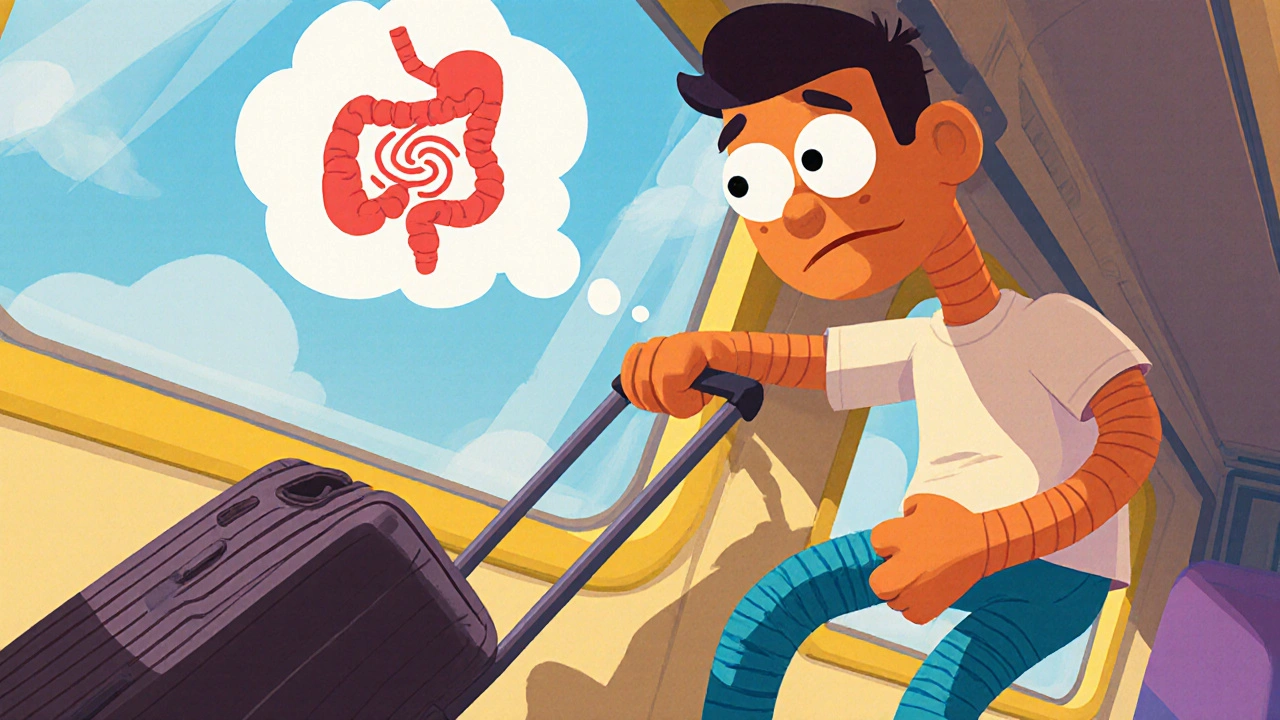Traveler's Diarrhea: Causes, Prevention, and What Works
When you're exploring a new country, the last thing you want is to be stuck in a bathroom. Traveler's diarrhea, a digestive illness caused by eating or drinking contaminated food or water, especially in regions with lower sanitation standards. It's also known as Montezuma's revenge, and it affects up to half of all international travelers. It's not just about bad luck—it's about what's in your food, water, and even ice cubes. The usual culprits? Bacteria like E. coli, Salmonella, or Shigella. Viruses and parasites show up too, but bacteria are the main offenders.
You don't need to avoid traveling to stay safe. Simple steps make a huge difference. Drink only sealed bottled water or boiled water. Skip raw veggies, undercooked meat, and street food if you're unsure. Hand sanitizer helps, but washing with clean water is better. And if you start feeling off? Rehydration therapy, the process of replacing lost fluids and electrolytes to prevent dehydration is your first line of defense. Oral rehydration salts, sold everywhere from pharmacies to convenience stores, work better than soda or juice. They’re cheap, effective, and literally lifesaving in severe cases.
Antibiotics aren't always needed, but they can shorten the illness by a day or two if taken early. Antibiotics for diarrhea, such as azithromycin or rifaximin, are often prescribed for travelers heading to high-risk areas. But don't just grab them without a plan—overuse breeds resistance. Talk to your doctor before you leave. Some people carry a small supply just in case, but only use it if symptoms are moderate to severe and last more than 24 hours. Loperamide (Imodium) can help slow things down, but never use it if you have a fever or bloody stool—it can trap infection inside.
What you’ll find in the articles below isn't just theory. It's real advice from people who’ve been there, and from experts who know what works. You'll see how to spot the difference between a bad stomach and something serious, what to pack in your travel first-aid kit, and how to avoid the most common mistakes. No fluff. No guesswork. Just clear, practical steps to keep your trip on track—even when your gut isn't cooperating.

Managing Acute Diarrhea on Long-Distance Trips: A Practical Guide
Caspian Mortensen Oct, 15 2025 13Learn fast, practical ways to handle acute diarrhea on long trips-from immediate hydration and medication to packing tips, food safety, and when to seek medical help.
More Detail